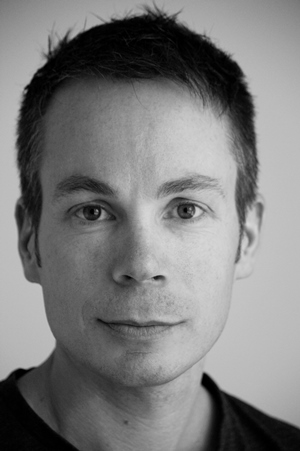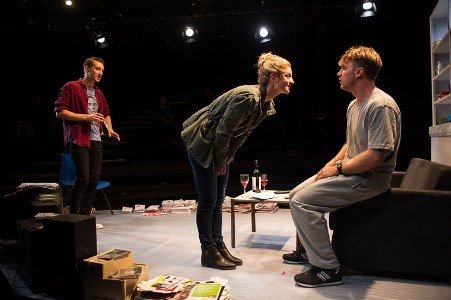08.04.14
In our final blog from the Music rehearsal room, director Corey McMahon reveals how he came to know Jane Bodie and the challenges of directing a new play.
I was standing in the rehearsal room at Paines Plough, the new writing theatre company I worked for in London some years ago now when, having heard my Australian accent, an actress working with the company asked me if I knew Jane Bodie.
“Who?” I replied “No I’ve never heard of her. Is she a playwright?”
If looks could kill. It was obvious I gave the wrong answer.
 |
|
Music director, Corey McMahon |
I was a very green, recently graduated director, muddling my way through an internship with one of London’s leading new writing theatre companies. As most graduates do, you think you know everything and everyone upon leaving the cosy confines of a drama school. Got it down. Clearly I knew nothing. I did some research, popped down to the National Theatre Bookshop (as you do) and bought myself a copy of A Single Act. Given I had written a thesis at university about how playwrights responded to 9/11, quite how I missed A Single Act will go down as one of the great mysteries of the twenty-first century. The play is structurally audacious, acutely observed, witty and complex. Now, I knew who Jane Bodie was.
Roll forward to 2011 and I am directing Rust and Bone by Caleb Lewis at the National Play Festival in Sydney. Directing at the Play Festival is a bit like directing in a pressure-cooker. That’s the best way to describe the event from an artist’s point of view. I remember being so focused on getting the right outcome for the play, that I lost track of what else was going on at the festival. This meant I missed the reading of a play called Music by Jane Bodie. I heard people talk about the other plays being developed and presented at the festival, but sadly I missed Music. And I missed out on meeting Jane Bodie.
Directing a new play brings with it a different set of challenges to those experienced when directing an established text. There’s no form guide to the play. No one has gone before you. It is a process of discovery. Who are these people? What are the rules of this world and what is their place in it? How does the play function? Does it work? If it doesn’t, why doesn’t it? How can we solve any issues that arise and still remain faithful to the playwright’s vision? The ultimate test of a new play is when it is put through its paces for four weeks in a rehearsal room with a cast of actors and a creative team. The actors get in under the skin of the play and push it to its limits. It’s exciting.
 |
|
Tom Stokes, Kate Skinner & Anthony Gee Photo: Kurt Sneddon |
The writing of Jane Bodie is demanding and complex. Good playwrights do more with less. And so it is with Jane’s writing. It is sparse, but like the iceberg floating in the ocean, there is a huge chunk of complex emotional, often illogical thoughts and feelings underneath. For an actor, working with Jane’s words requires tenacity and discipline. It’s hard work but it’s all there for a reason. You just have to trust it. Actors often need to map the logical steps from one moment to the next. One thing leads to another, then onto the next thing and the next. But Jane’s characters often say and do things that, in the moment, make no sense. This can confound an actor searching for their next logical step. But as we have learned throughout this process, the answers are there. They may not be where you expect them to be. But they are there. And that’s the sign of a playwright at the top of their game and why it has been such a satisfying journey of discovery working on Music.
As a result of my regular conversations with Jane about Music, often over a glass of wine and a gluten free burger (that’s for me), it became obvious to me that she is an astute observer of humanity. Jane captures the pain and vulnerability of people struggling to find their place in the world with heartbreaking accuracy. It’s often uncomfortable but as with all of Jane’s work, it is written with a wry sense of humour and an unquestionable truth.
And that’s what I hope audiences will find with her new play, Music. It’s beautiful. It’s challenging. It’s funny and it’s speaks with truth and integrity. It’s perfect for the intimate Griffin stage and I look forward to watching how audiences respond to it.
By the way, Jane Bodie is my neighbor. And a dear friend. And I am directing her new play. Funny how the world works.
Corey McMahon, March 2014
Music by Jane Bodie plays until 26 April. For more info and to book tickets, click here.

